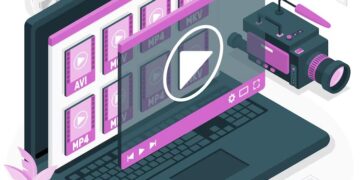Healthcare costs keep rising across America. Patients often wait hours in emergency rooms for minor issues. Meanwhile, serious cases sometimes don’t get the urgent care they need. This is where triage services step in to make a real difference.
About Triage Services
Triage services help sort patients based on how urgent their medical needs are. The word “triage” comes from French and means “to sort.” In healthcare, it means putting the sickest patients first in line for treatment.
These services work by having trained nurses or doctors quickly assess each patient. They look at symptoms, vital signs, and medical history. Then they decide who needs immediate care and who can wait safely.
The Growing Need for Better Healthcare Access
American hospitals face serious challenges today. Emergency rooms are overcrowded. Many people use the ER for problems that aren’t true emergencies. This creates long waits for everyone.
At the same time, many Americans live in areas with few doctors. Rural communities especially struggle with healthcare access. People often drive hours to see a specialist or get basic care.
Triage services help solve these problems. They make sure the right patients get the right level of care at the right time. This saves money and can even save lives.
How Modern Triage Services Work
Today’s triage services use technology to work better than ever before. Many operate through phone calls or video chats. Patients can describe their symptoms to a trained professional without leaving home.
The triage nurse asks specific questions related to symptoms. They might ask about pain levels, fever, or when symptoms started. Based on these answers, they advise on what to do next.
Some patients learn they can treat their condition at home with over-the-counter medicine. Others get directed to urgent care clinics. The most serious cases get sent straight to the emergency room.
This system works well since it puts trained medical professionals in charge of these important decisions. Patients don’t have to guess whether their symptoms are serious or not.
Benefits for Patients and Healthcare Systems
Triage services offer many benefits for everyone involved. While patients get faster access to appropriate care, they also save money by avoiding unnecessary ER visits.
Healthcare systems benefit too. Emergency rooms can focus on true emergencies which means shorter wait times for everyone. It also reduces costs for hospitals and insurance companies.
Besides the other things, these services help prevent medical errors. When patients go to the right level of care from the start, they’re more likely to get proper treatment leading to better health outcomes overall.
Triage Services in Workplace Healthcare
Many employers now use triage services as part of their healthcare benefits. When workers get injured or sick, they can call a triage line first which helps them decide if they need immediate medical attention.
Workers Comp telemedicine programs often include triage services as a key feature. These programs help injured workers get the essential care faster. Apart from speeding up recovery times, it can reduce claim costs.
Employers like these programs since they help control healthcare spending. However, workers also appreciate having expert guidance when health problems arise.
Technology Making Triage Services Better
New technology keeps improving how triage services work. Smartphone apps can now connect patients with triage nurses instantly. Some apps allow patients to take photos of injuries for better assessment.
Artificial intelligence is starting to help with triage decisions too. Computer programs are able to analyze symptoms and suggest appropriate care levels. However, human medical professionals still make the final decisions.
Triage services are more accessible than ever because of these technological advances. Patients can get expert medical advice round the clock.
Future of Healthcare Triage
Triage services will likely become a lot more important in coming years since healthcare costs continue rising and these services offer a cost-effective solution. They help people get the necessary care without having to spend too much.
More insurance companies are starting to require patients to use triage services before going to the ER for non-emergency issues. This trend will probably continue as the benefits become clearer.
Healthcare systems that embrace triage services often see improved patient satisfaction scores. Patients like getting expert guidance and reduced wait times.
Making Healthcare Work Better for Everyone
Triage services mean a smarter approach to modern healthcare challenges. They rely on trained professionals and technology to match patients with appropriate care levels which benefits both patients and healthcare providers.
Triage services will play a pivotal role in American healthcare. They offer an effective solution to rising costs and access problems affecting millions of Americans every day.


























